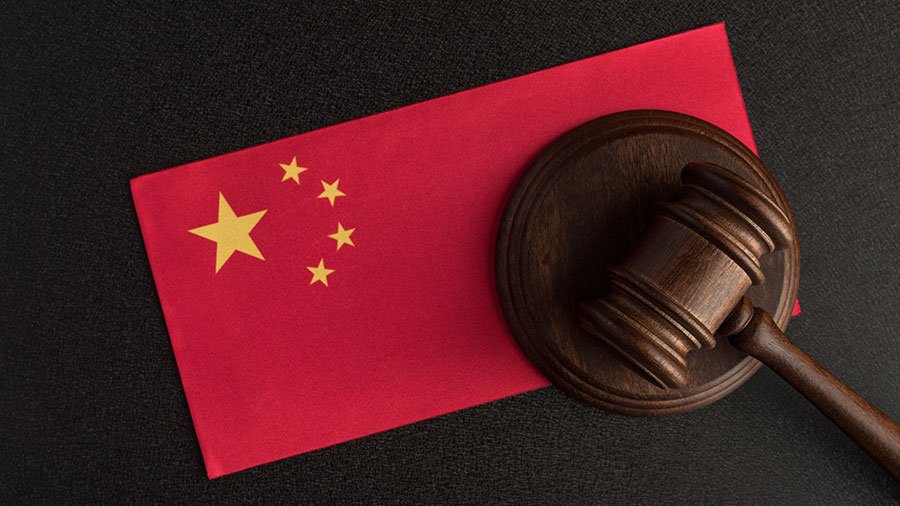Must-Know Local Laws for a Trouble-Free China Tour
Embarking on a journey to China can be an exciting adventure. The country’s rich history, diverse culture, and breathtaking landscapes make it a top destination for travelers worldwide.
However, to ensure a smooth and enjoyable experience, it’s crucial to familiarize yourself with the local laws. China’s legal system may differ significantly from what you’re accustomed to in your home country.

Understanding these laws can help you navigate potential challenges and avoid inadvertent legal issues. From carrying identification at all times to respecting cultural norms, these laws cover a wide range of aspects.
This guide aims to provide comprehensive insights into the must-know local laws for a smooth China tour. Whether you’re a seasoned traveler or planning your first trip to China, this information will be invaluable.
So, let’s delve into the intricacies of Chinese local laws and equip you with the knowledge you need for a memorable and trouble-free China tour.
Table of Contents
Understanding the Chinese Legal System
The Chinese legal system is a complex structure, rooted in the country’s unique history and societal norms. It’s a civil law system, meaning laws are codified and judicial decisions don’t serve as legal precedents.
For tourists, this implies that the law is the ultimate authority. Understanding the legal system’s structure and its implications can help you navigate your journey more effectively. It’s essential to respect the law, comply with local regulations, and be aware of your rights and responsibilities as a visitor.
Carrying Identification at All Times
In China, it’s a legal requirement for everyone, including tourists, to carry identification at all times. This is typically your passport and visa or residency permit.
Failure to produce these documents when requested by law enforcement can lead to penalties. It’s advisable to keep photocopies of your documents in a safe place, in case of loss or theft.
Visa and Residency Permit Regulations
China has strict visa regulations that all foreign visitors must adhere to. Tourists are required to apply for a visa before arrival, with the type of visa depending on the purpose and duration of the visit.

Overstaying your visa is a serious offense in China. Penalties can range from fines to detention and deportation. It’s crucial to understand the terms of your visa and ensure you do not violate them.
If you plan to work or study in China, you’ll need to apply for a different type of visa. Working on a tourist visa is illegal and can lead to severe penalties, including imprisonment. Always ensure your visa matches your intended activities in China.
Public Behavior and Cultural Norms
Understanding and respecting Chinese cultural norms is crucial for a smooth China tour. Public behavior in China is governed by both legal and social rules, which can vary significantly from Western norms.

For instance, public displays of affection are generally frowned upon, especially in more conservative or rural areas. Dress modestly, particularly when visiting religious or cultural sites. It’s also important to note that China has strict laws against causing public disturbances.
Here are some key points to remember:
- Avoid loud or disruptive behavior in public places.
- Respect local customs and traditions.
- Dress modestly, especially when visiting religious or cultural sites.
- Public displays of affection are generally frowned upon.
By understanding and respecting these norms, you can avoid inadvertently offending locals or violating local laws.
Internet Usage and the Great Firewall
Internet usage in China is subject to strict regulations, often referred to as the “Great Firewall of China”. This system of internet censorship restricts access to many foreign websites, including popular social media platforms like Facebook, Twitter, and Instagram.

It’s important to be aware that certain online content is prohibited in China. This includes content that is considered politically sensitive or offensive. Violating these restrictions can result in severe penalties, including fines and imprisonment.
To stay connected with the outside world, many tourists use Virtual Private Networks (VPNs). However, the use of unauthorized VPNs is also illegal in China. Therefore, it’s crucial to stay informed about the latest regulations and to use legal methods to access the internet.
Legal Age for Drinking and Smoking
In China, the legal age for drinking alcohol is 18 years. This law is strictly enforced, especially in urban areas and popular tourist destinations. Violating this law can result in hefty fines and potential legal trouble.
Similarly, the legal age for smoking is also 18 years. Smoking is prohibited in many public places, including restaurants, hotels, and public transportation. It’s important to respect these laws and the rights of non-smokers. Violations can lead to fines and, in some cases, legal action.
Photography and Videography Laws
China has specific laws regarding photography and videography, especially near government buildings and military installations. Unauthorized photography in these areas can lead to confiscation of equipment, fines, or even detention. Always look for signs or ask local authorities if unsure.

Moreover, some cultural and religious sites may also have restrictions on photography. It’s essential to respect these rules to avoid offending local customs and traditions. Always ask for permission before photographing people, especially in rural areas and minority communities.
Drone Usage Regulations
Flying drones in China is subject to specific regulations and requires a permit from the Civil Aviation Administration of China (CAAC). Without a permit, you risk confiscation of your drone, fines, or even legal action.

Moreover, flying drones near airports, urban areas, and sensitive sites like government buildings or military installations is strictly prohibited. Always check local regulations before flying a drone, and when in doubt, seek advice from local authorities or drone clubs.
Zero Tolerance for Drug Offenses
China has a zero-tolerance policy towards drug offenses. This includes possession, use, and trafficking of illegal substances. Penalties for drug-related crimes are severe and can include life imprisonment or the death penalty.
Foreigners are not exempt from these laws and penalties. If you are caught with illegal substances, you will be subject to the same legal process as Chinese citizens. It’s crucial to avoid any involvement with drugs while in China to ensure a trouble-free visit.
Currency Regulations for Tourists
China has specific regulations regarding the import and export of its currency, the Renminbi (RMB). Tourists are allowed to bring in or take out a maximum of 20,000 RMB without declaration. If you carry more than this limit, you must declare it to customs.
It’s also important to note that the use of foreign credit cards can be limited in China. Many businesses prefer cash or local payment apps like WeChat Pay or Alipay. Therefore, understanding these currency regulations can help you plan your finances effectively for your China tour.
Navigating the Judicial Process as a Foreigner
The Chinese judicial system can be complex for foreigners to navigate. If you find yourself in a legal dispute, it’s crucial to understand your rights and responsibilities. Remember, as a foreigner, you are subject to Chinese law, and ignorance of the law is not a valid defense.
In case of legal issues, it’s advisable to seek assistance from your embassy or consulate. They can provide a list of local attorneys who speak your language. However, they cannot interfere in the judicial process. Understanding these aspects can help you handle any potential legal challenges during your China tour.
Interacting with Law Enforcement
Interactions with law enforcement in China should be approached with respect and compliance. Chinese police officers are generally professional and helpful, but language barriers can sometimes complicate communication. It’s advisable to carry a translation app or a phrasebook to facilitate better understanding.
If stopped by the police, cooperate fully and provide identification if asked. Remember, arguing or resisting can escalate the situation. If you feel your rights are being violated, note the officer’s badge number and report the incident to your embassy or consulate. Understanding these protocols can help ensure a smooth interaction with law enforcement during your China tour.
Respecting Religious and Cultural Sites
China is a country rich in cultural heritage and religious diversity. As a visitor, it’s crucial to respect these sites and adhere to the local customs and laws. This includes dressing modestly, refraining from loud behavior, and not touching or damaging artifacts.
Some sites may have specific rules, such as prohibitions on photography or certain behaviors. Always look for signage or ask a guide if you’re unsure. Respecting these sites not only ensures you’re following Chinese local laws, but also contributes to the preservation of these important cultural treasures.

Traffic Laws and Regulations
Navigating traffic in China can be a unique experience for many foreign visitors. It’s essential to understand and follow the local traffic laws for a safe journey. For instance, driving is on the right side of the road, and seat belts are mandatory for all passengers.
Jaywalking is also taken seriously in many Chinese cities, with fines imposed for violations. If you plan to drive, ensure you have a valid international driving permit along with your home country’s license. Remember, understanding and following traffic laws is not just about avoiding fines, but ensuring your safety during your China tour.
Travel Insurance and Legal Aid Coverage
Travel insurance is a crucial aspect of planning your China tour. It’s not just about health coverage, but also about legal aid. In case of any legal issues, having an insurance policy that covers legal aid can be a lifesaver. It’s advisable to check the terms of your travel insurance policy before your trip.
Remember, legal aid coverage can help you navigate the Chinese legal system more effectively if you find yourself in a difficult situation. It’s always better to be prepared and have the necessary support in place, ensuring a smooth and worry-free travel experience.
Tipping Practices and Anti-Corruption Laws
In China, tipping is not a common practice and is often not expected. However, it’s important to understand that offering large tips can sometimes be misconstrued as bribery, which is a serious offense under Chinese law. It’s crucial to be aware of this cultural and legal difference to avoid any potential misunderstandings.
Moreover, China has strict anti-corruption laws in place. Offering gifts or money to government officials or business partners can lead to severe legal consequences. Always remember, when in doubt, it’s best to err on the side of caution to ensure a smooth China tour.
Consumer Rights and Protections
As a tourist in China, it’s essential to be aware of your consumer rights and protections. Chinese law provides safeguards against fraudulent practices, such as counterfeit goods and overcharging. However, it’s crucial to be vigilant and informed to effectively exercise these rights.
If you believe you’ve been a victim of a scam or unfair business practice, you can report it to the local authorities. Remember, understanding your rights and the available legal protections can greatly enhance your travel experience and ensure a smooth China tour.
Customs Regulations: Prohibited and Restricted Items
When entering or leaving China, it’s important to be aware of the customs regulations. Certain items are prohibited or restricted, and attempting to bring them in or out of the country can lead to legal issues. These include certain types of food, drugs, weapons, and cultural relics.

Before packing your bags, make sure to check the latest customs regulations. This will help you avoid any potential legal complications and ensure a smooth China tour. Remember, ignorance of the law is not an excuse, and it’s your responsibility to comply with all local laws.
Staying Informed: Embassies and Consulates
Embassies and consulates can be a valuable resource for staying informed about local laws in China. They often provide updated information about legal changes, travel advisories, and other important issues that could affect your stay.
In case of legal trouble, your embassy or consulate can provide assistance. However, their ability to intervene in legal matters is limited. They can provide a list of local attorneys, help you understand the local legal process, and in some cases, they can contact your family. But they cannot get you out of jail or provide legal advice. It’s crucial to understand this before your China tour.
Conclusion: The Importance of Legal Awareness
Understanding local laws is a crucial part of planning a successful trip to China. It not only helps you avoid legal trouble but also enhances your travel experience by providing insights into the cultural norms and expectations of the country.
In conclusion, a smooth China tour requires more than just packing your bags and booking your flights. It requires a deep understanding of the local laws, respect for the culture, and a willingness to adapt to new norms. So, before you embark on your journey, take the time to familiarize yourself with the legal landscape of China. It’s an investment that will pay off in a richer, more enjoyable travel experience.








